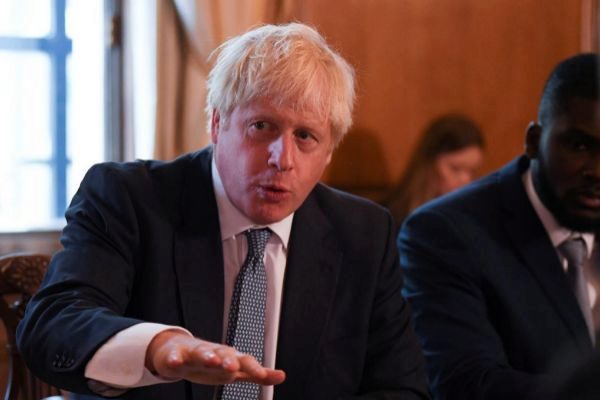The rise to power of the eccentric Boris Johnson (former mayor of London, former Foreign Minister, and one of the most histrionic and popular politicians of the last decade) marks the end of Theresa May's stage at the head of the cabinet. And, if something attracts attention in the analyzes and profiles that have been carried out, it is the little interest that May's legacy arouses. His has been a mandate determined by a single issue - Brexit - and his inability to move it forward will undoubtedly condition the judgment that history reserves.
However, a more rested analysis and less focused on the external aspect yields data that suggest that profound changes began to take place during his tenure (on which May probably had little influence, certainly) that will surely transform the way in which governs in the United Kingdom, whether or not Brexit. To begin with, the most striking change has surely occurred in the political sphere, which depends on the customs and customs to an extent that is inconceivable on the continent. For example, in the United Kingdom it is understood that if a prime minister loses an important vote before the House of Commons, he has lost the confidence of the Parliament (fundamental in a system in which there are no investiture plenary sessions like the ones that entertain us these days in Spain), and therefore should resign or call elections . As a direct consequence of that, the defeats of the Government were counted, and great emphasis was placed on controlling the wayward deputies and ensuring that voting was held only if there was a sufficient majority.
Thus, from the arrival of Thatcher in 1979 until 2016, governments of different signatures that ruled during the period totaled a total of twenty-seven parliamentary defeats. But the Government of May, meanwhile, has accumulated nine in less than three years of office. Brexit, with the parliamentary fragmentation in which it has degenerated , has led governments to suffer more defeats at the hands of Parliament, but curiously they feel less challenged by them.
Another change in draft is that related to instability within the Government itself. Thus, while David Cameron suffered fourteen resignations during his six years in power, Theresa May has suffered a whopping fifty-three resignations in less than three years, which gives an idea of the level to which the internal division of political parties Traditional around Brexit has been an obstacle to government action.
These are the two main changes that Brexit has meant at the government level, but perhaps the area in which the changes are deepest is public administration.
Due to Brexit preparations, the May Government put an end to austerity and revitalized the hiring of public employees. While in the Cameron era (whose austerity measures were strongly answered) the number of public employees fell by almost 20%, during the May period almost a quarter of the total lost since 2010 has been recovered . This is particularly striking if one considers that they are two consecutive prime ministers and of the same party. The change is only understood by an event of seismic effects such as Brexit. In fact, the turning point occurred exactly in the quarter in which the referendum was held.
Similarly, if the new hiring of public employees is taken into account, the social sectors that will benefit from the UK regaining control can begin to glimpse. According to the British think tank Institute for Government , the increase in the number of public employees has been more intense in management positions, which has important effects: first, the average income of civil servants moves further away from that of the rest of the country, and public employment becomes (even) more centralized in London . And, surprisingly, these new senior positions are being filled with highly qualified young employees.
Put simply: young urbanites with a high degree of training , who are accused of benefiting from a globalization that leaves out many population exchanges, seem to be benefiting equally from the changes that Brexit is already producing. It can be argued that the civil servant does not have a great weight in determining the social and labor structure of an entire country, but it cannot be overlooked that the pro-Brexit campaign has had fierce criticism as one of its main motives against an alleged elite official of Brussels totally away from the average citizen.
Perhaps there lies one of the great paradoxes of the historical hour in which the United Kingdom has been trapped for more than two years. While Brexit has been interpreted as a reaction of the poor neighborhoods, rural areas and former industrial centers , for the time being this has resulted in a concentration of public employment in London. While many consider that the referendum was a punch on the table by older citizens, the new civil servant is younger than ever. And, while the exit from the EU has been considered a revolt of low-skilled workers with concerns about their future, regaining control seems to have translated for the moment into changes as disconcerting as an increase in officials with higher education working for the Tory administration
This is one of the apparent contradictions of this populist time in which we live installed. One of many . But perhaps not as symbolic as that conservative affiliates have entrusted the final nationalist and populist turn of their party to a man who descends from a Turk, is a polyglot and has a first name of Slavic origin.
Arman Basurto is a legal advisor in the Congress of Deputies.
According to the criteria of The Trust Project
Know more- UK
- London
- Theresa May
- Spain
- David Cameron
- Congress of Deputies
- Boris johnson
Boulevard Political promises: 'parole, parole'
Editorial Johnson's choice further complicates Brexit
EditorialBoris Johnson: unacceptable blackmail to the EU

